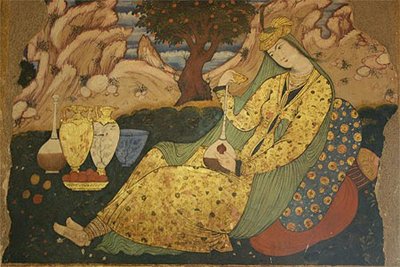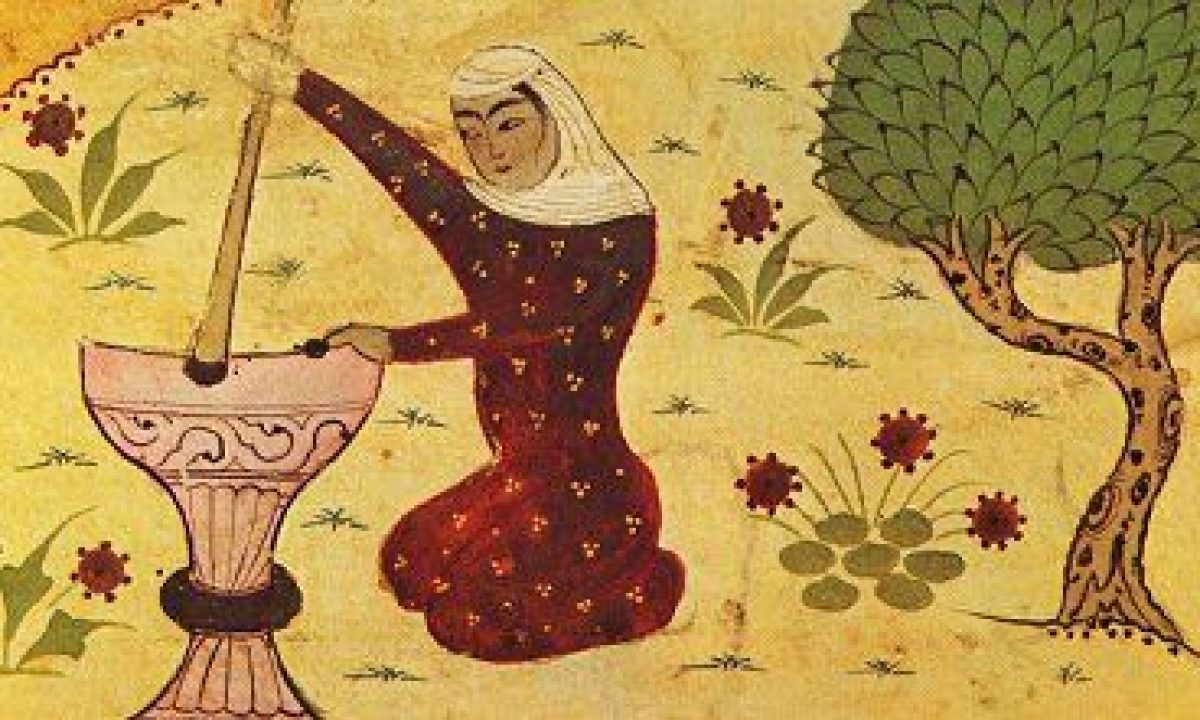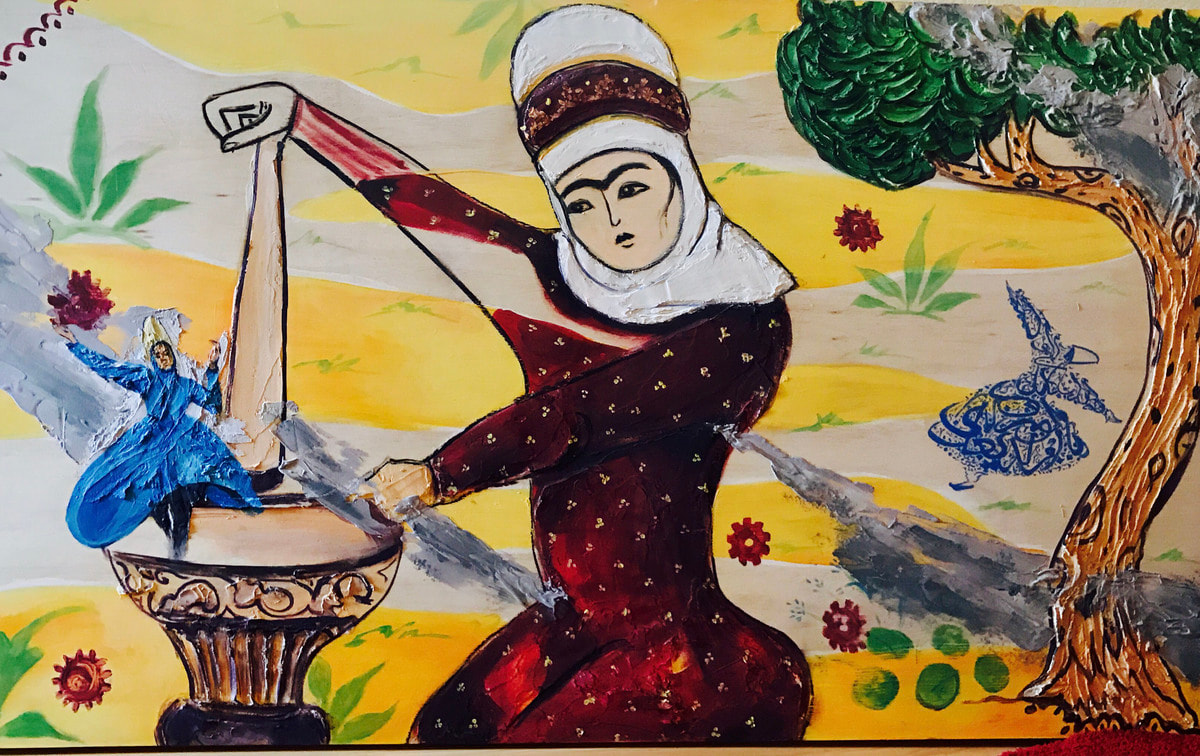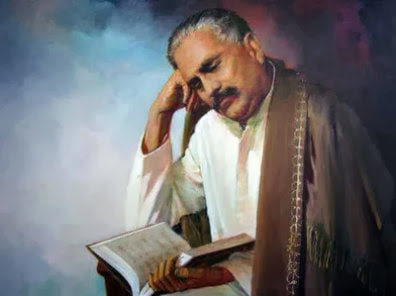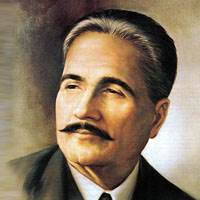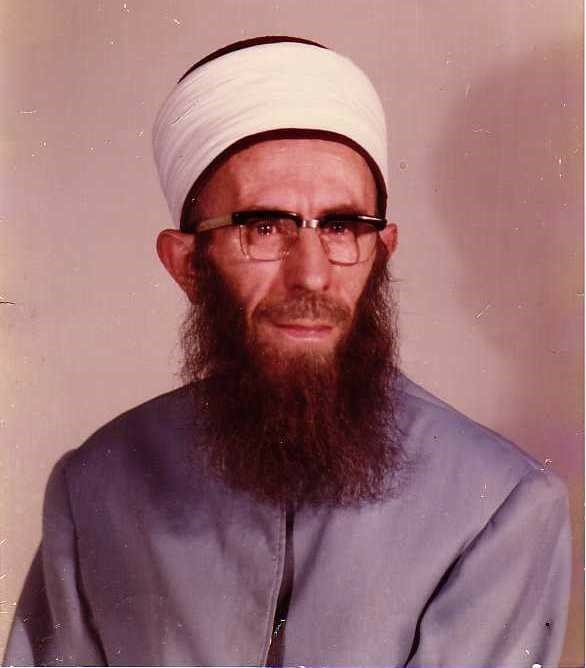|
Who is Rabia al-Adawiyya? Rabia was an 8th century female saint who was known for her devotion to God and ascetic lifestyle. She is more commonly known as Rabia al-Basri. The Glad Tiding
The father of Rabia wasn't a man of wealth but always remained content with God's decree. He disliked asking others for provisions, however, one day his wife asked him to go and borrow from their neighbours. To avoid arguing, he left and knocked his neighbour's door but left before anyone could answer it. When his wife asked what happened, he responded that the door didn't open. Later that night, he was upset for he felt he failed in his responsibility to provide for his family. That very night, the Prophet ﷺ came into his dream and understood he was in a state of distress. The Prophet ﷺ said to him, "Do not grieve for the girl born to you is exceptionally fortunate and pious." The Governor of Basra Continuing from the dream, the Prophet ﷺ then instructed Rabia's father to present a letter to the Governor of Basra which read: "Every night you recite 100 Salawaat upon me ﷺ and on every Friday you recite 400. Last Friday, you forgot to recite the 400 Salawaat." The following day, he requested an audience with the Govenor and said, "I have a message for you from the Prophet ﷺ." When the Governor read the letter, he was overjoyed for the Prophet ﷺ had acknowledged and received his recitation of salutations. WIthin the letter there was a condition for the Governor which was he had to give 400 Dinars (gold coins) to Rabia's father. Out of his happiness, the Governor distributed 10,000 Dirhams to the poor. Devotion to God After the passing of her parents, Rabia was enslaved. She was purchased as a manual labourer. After gruelling daytime work, Rabia would spend her nights in worship and often fast during the day. One night, her master heard her voice whilst she prayed. She said to God: "O my Lord, Thous knowest that the desire of my heart is to obey Thee, and that the light of my eye is in the service of Thy court. If the matter rested with me, I should not cease for one hour from Thy service, but Thou hast made me subject to a creature." Upon hearing this, the master decided it was sacrligious to keep such a saint in his service and chose to serve her. He granted Rabia freedom as she chose to continue her worship in solitude.
0 Comments
Who is Junayd Baghdadi
Junayd was a great man of God whose rank was exalted by the Prophet ﷺ and placed amongst the Awliya (Friends of God). He became an orphan at an early age therefore was taken in by his uncle, Shaykh Sirri Saqti. The Holy Lands Encounter At 7 years old, he travelled with his uncle to the Holy Lands. When they reached Makkah and the Haramain, 400 scholars were present and were discussing the topic of “Shukar” (gratefulness). His uncle turned to him and said “O Junaid, you should say something too.” He lowered his gaze for a few moments and then said, “Shukr is this, that you should not be disobedient through whatever bounties Allah has blessed you with, and you should not use it as a means of disobedience and causing distress.” Upon hearing this, the scholars proclaimed in unison, “O coolness of our eyes, whatever you have said is the truth, and you are honest in your words, we cannot say better than what you have said.” When asked by his uncle, “O dear son, where did you learn this?” He replied, “This is through the blessing of your esteem companionship.” The Story of His Sainthood (Wilayah) Prior to sainthood, Junayd was a skilled warrior and an undefeated world-renowned wrestling champion. One day the King of Baghdad issued a challenge, “Today, if any man defeats Junaid, I will give him whatever he asks.” A man came forth and accepted the challenge. The crowd gasped in shock for the man was feeble and weak. So weak that his skin was hanging off his bones. The King remarked “It seems that death is calling him. How will he beat Junaid? He won’t withstand a slap.” The man remained firm in his call, he wanted to fight. The Conversation The fight became official and Junayd entered the arena. Just before the fight took place, the man whispered into Junayd's ear. He said “Everyone is right, I cannot withstand your strike but I have no choice. I have two daughters who are ready for marriage but I own nothing. In my shame, I wish to die. I either jump into the ocean or die by your hands.” Junayd replied, “If you need wealth, go ask the King and he will help.” The man responded “I cannot ask anyone for anything. I am from the offspring of the Prophet ﷺ, a Sayyid, it is forbidden for me to ask. Now, you can lose and sacrifice your honour of the world but you will gain honour in the court of the Prophet ﷺ.” The Choice Junayd pondered over the offer. If he lost, he would lose his fame and reputation. If he won, with what face would he face the Prophet ﷺ? The whistle blew and the fight commenced. To avoid suspicion, Junayd displayed some finesse in his manoeuvres but allowed himself to be pinned. The man mounted his chest and was victorious. After succumbing to his first loss, the people disowned Junayd. When he arrived home, he began crying but his heart was content. That night, the Prophet ﷺ came to him in a dream and said, “O Junayd! You sacrificed your honour and kept the dignity of one of my sons. As of today, your name is raised amongst the Awliya.” Response to the King The next day, the King summoned Junayd and said, “O Junayd, we know you. No man can compete with you and yet yesterday you hardly fought. Tell me this, why did you fall and let the man beat you?” Junayd responded, “I am not Shimr who stands on the chest of the offspring of the Prophet ﷺ. The man was a Sayyid so how could I stand upon his chest? Yes, I sacrificed my honour for the sake of the Prophet ﷺ and from today I need not wrestle. From today, I shall spend my life in the love of the Prophet ﷺ.” Who is Nizam al-Din Awliya?
A 13th century Chishti saint who originated from Badayun and later emigrated to Dehli. Nizam belonged to the Ahlul Bayt (Descendant of the Prophet ﷺ) through the lineage of Ali al-Naqi. He studied with various prominent scholars and became a disciple of Baba Fariduddin Ganjshakar. Baba Fariduddin's Heir In the year 664 AH, on the 13th of Ramadhan, Baba Fariduddin gave Nizam his 'Khilafah' (Inheritance of the Path) aged 23. He said, "You (Nizam) will be a tree under whose cool shade, all of humanity will find a cure." The symbolism of Nizam al-Din being a tree was that a tree discriminates against none and it is a source of shade/sustenance for those who come to it. This metaphor becomes a reality later when Nizam al-Din returns to Dehli. Denouncement of the World (Dunya) A key attribute of Nizam al-Din was that he had a strong aversion to associating with rulers and it then became a part of his teachings. He said, "do not approach the doors of kings. Seek no recompense from them." If a letter was sent by the king, he would leave it unopened and would remain apolitical. As Nizam grew in popularity, the sultan would send spies to investigate for he felt his political status was threatened. The King's Letter Alauddin Khilji, the ruler of Dehli at the time, wished to meet Nizam al-Din but was refused. Nizam said to him, "In this Khanaqa (Institute), there are two doors. If you enter from one, I will leave through the other." One day, Alauddin arrived at the Khanaqa unexpectedly but was refused entry. He took a piece of paper and wrote, "What is this? At the palaces of kings, aides and servants are found. Yet, I find aides and servants at the doors of the Faqirs (Ascetics). What is the difference between kingship and ascetism?" The epistle was delivered to Nizam, who replied, "The aides at the doors of kings refuse entry to the poor and needy. The aides at our doors refuse entry to the likes of kings." The Khanaqa was a place for the destitute to reside and take provisions. No-one was ever turned away and didn't leave except their need was fulfilled. After expressing his desire to view the Khanaqa, Alauddin was granted entry. The King's Visit Alauddin was shown around the Khanaqa and witnessed the generosity of Nizam al-Din, in particular the Langar (open feast). He was then shown the horses stable. The shackles were made from silver and the chains tied to the horses' feet were made from gold. To Allaudin's amazement, he wrote again to Nizam al-Din with, "What is this? Kings possess gold and silver and so do ascetics? What is the difference between kings and ascetics?" Nizam replied, "The difference is that kings carefully conceal away their treasures and the ascetics place it around the feet of horses." Who is Iqbal? Muhammad Iqbal was a great poet and philosopher. His main concerns were the thoughts, ideas and conditions of the global Muslim community, in particular the Indian Muslims under British rule who were threatened by a Hindu majority. Literature
The pen of Iqbal is symbolic of true love and devotion. His intellect and depth are found in his writings. Iqbal was hugely inspired by Mevlana Rumi and considered him as his spiritual guide. He has authored many works which are still very relevant today such as "The Reconstruction of Religious Thought in Islam" and "Bang e Dara". Poetry During that era, Ghalib was a renowned poet but the honour and prestige given to Iqbal were far greater. Someone asked him about the sweetness of his words. Iqbal replied, "I recite 125,000 salutations upon the Prophet ﷺ. Khudi Iqbal is famous for the concept of "Khudi". Khudi refers to the inner self of an individual and how we should nurture it to realise our full potential. In a poem, Iqbal writes: "The path to God is hidden in Khudi, find it! O the one who has neglected, This is now the way of your salvation and reawakening!" A Lasting Legacy Many of us know Iqbal as one of the forefathers of Pakistan. He argued that Muslims should create a nation of their own, free from British influence. He also pushed for Arabic to be the national language for it was the language of our Beloved ﷺ but also so sub-continent Muslims could access books of religion, history and literature. He was a firm believer that the youth inherit the roles of leadership and guidance for each community and nation. He, therefore proposed that the Prophetic Characteristics (Shama'il) should be a compulsory part of the school curriculum. Sadly, Iqbal's vision of Pakistan did not come to fruition. However, we learn many lessons from his books and teachings. "The Sun of Damascus in the 20th Century" VERILY, Ibrāhīm was a man who combined within himself all virtues (Qurʿān, Al-Naḥl 120) On the eve of the ʿEid festival in the year 1924, a special event took place in Damascus. As the ancient city’s walls shook with festive cries of glorification, a baby boy was born to the prestigious Al-Yaʿqoubi family. The Damascene people welcomed the sacred festivities with joyous cognition, but were completely oblivious to the fact that the boy--who was named Ibrāhīm--would become the cause of an altogether different kind of festivity. There was an exception to this however. The father of the boy, known amongst his people as an ascetic scion of the Prophet ﷺ, knew with certitude that his son would become a great man of Allāh.
His Upbringing Like all the prolific scholars of our history, the upbringing of Sheikh Ibrāhīm Al-Yaʿqoubi was meticulous. His father, the great man of Allāh and descendant of the Prophet ﷺ Sheikh Ismāeel Al-Yaʿqoubi, taught Sheikh Ibrāhīm the Qurʿān and the tenets of Islamic creed while he was still a young child. He then entrusted Sheikh Ibrāhīm to the Islamic seminary of Sheikh Muḥammad Al-Ḥijāzi where Sheikh Ibrāhīm remained for six years and drank from the oceans of the Islamic sciences till he quenched his thirst. Throughout his childhood, Sheikh Ibrāhīm was surrounded with giants of sacred knowledge who imbued within him the sanctity of the Sharʿiah. His paternal uncle Sheikh Moḥammad Al-Sharīf Al-Yaʿqoubi was the official Imām of the Malikis in the grand Ummayyad mosque, and his maternal uncle Sheikh Moḥammad Al-ʿArabi al-Yaʿqoubi took over this position after Sheikh Moḥammad Al-Sharīf in the same mosque. In the tender years of his youth, Sheikh Ibrāhīm memorised scores of classical texts across the spectrum of the Islamic sciences, until he memorised over 30,000 lines of such texts, a phenomenal and rare achievement at a time when Islamic scholarship had begun to dwindle and decline. Amongst the texts which he memorised were works which modern students of sacred knowledge would struggle to simply study from beginning to end, such as the Hāshiyah of Ibn Abideen (an advanced text in Islamic law according to the Ḥanafi school). He also taught certain texts so many times that he would all but memorise the texts such that he would immediately recall them from memory when asked questions by students. Thus he taught Mughnī Al-Labīb of Ibn Hishām (an advanced text in Arabic grammar) twenty times and Al-Hidāya of Al-Marghināni (an intermediate text in Islamic law according to the Ḥanafi school) twenty two times. He also taught master-works of the Sharīah which only the most adept of scholars are able to teach, such as the Kitāb of Sībawayh, Sharḥ Al-Kāfiyah of Al-Raḍiy, Tafsir Al-Kashāf of Al-Zamakhsari, Sharh Al-Mawāqif of Al-Jurjāni, Al-Muwafaqāt of Al-Shaṭibi, Sharḥ Jamʿ Al-Jawamiʿ of Al-Maḥalli and Mirāt Al-Uṣūl of Mullah Khusraw. All in all the classical works which he taught during his lifetime numbered over five hundred. This may seem like a farfetched feat, but Sheikh Ibrāhīm was extraordinary scholar. He had devoted every breath of his being to the service of the students of sacred knowledge, and was aided in his efforts by his incessant remembrance of Allāh all-mighty which he would maintain at all times. His Scholarship Sheikh Ibrāhīm had an outstanding level of persistence and diligence in seeking sacred knowledge, studying throughout the day and into the dark depths of the night. He also ensured he took each Islamic science from its experts, maintaining their company until he mastered their respective field of knowledge. Describing this remarkable habit, Sheikh Adīb Kallās states, “the similitude of Sheikh Ibrāhim Al-Yaqoubi is that of a jewel collector; he travels around the country to the most prestigious jewel merchants, taking from each merchant the most precious jewel which he has, then returning home with a glimmering collection of the most precious jewels.” Indeed Sheikh Ibrāhīm continued studying until he was compared to Al-Imām Al-Suyuṭi for achieving the rare feat of mastering no less than seventy disciplines of knowledge. His classes bore a unique mark which left a permanent impact on those who attended them. Such classes would sometimes go on for three hours, and he would be like an ocean with streams of knowledge gushing forth from his noble chest. He had an amazing ability at simplifying the most sophisticated of issues, making clear what was ambiguous, and making easy what was difficult. He would never leave his class without paying attention to and taking care of his students, who he treated as if they were his own children. For Sheikh Ibrāhīm, rearing and mentoring students of sacred knowledge was just as important as teaching them the sacred sciences. Due to the light of faith in his heart and his crystallised sincerity, he would sometimes say things in his lessons which could not be found within books but rather were a gift bestowed upon him directly from Allāh all-mighty. His status as a teacher is best illustrated by the fact that the vast majority of Islamic scholars and university lecturers in Syria after his death had either studied at his hands or indirectly benefited from his knowledge. He left works which number close to fifty, including books, epistles, poems, manuscripts which he edited and classical texts which he commented upon, most of which remain in manuscript form. He dictated two of these works entirely from his memory-one on the legal topic of inheritance and the other on the topic of classical logic. He taught in the mosques of Damascus for almost 40 years, and led the people in prayer as an imām in several mosques, including the grand Umayyad mosque. He was appointed as an Imām by the ministry of religious affairs in several mosques in 1952, as a teacher in the Darwish Bāsha mosque in 1954, and was eventually appointed the official Imām of both the Malikis and Ḥanafis in the Umayyad mosque, positions which he upheld until 1971. In 1983 he was given the task by the ministry of religious affairs to edit classical Islamic manuscripts and monitor the publication of new Islamic works, a task which he maintained until his death. The importance of such a task cannot be underestimated-one example should suffice to illustrate this. In the second half of the 20th century, a book of Islamic creed (ʿAqeeda) was written by a young Syrian scholar who was slowly becoming one of the shining stars in the field of sacred knowledge and gaining a huge following amongst the masses. As per his role within the ministry of Islamic affairs, Sheikh Ibrāhim proof-read the work before its publication and found no less than thirty two errors which the author had made. This was then politely raised to the author’s attention, who duly corrected them. The book later became one of the most widely respected modern works of Islamic creed in the Muslim world. Sheikh Ibrāhīm would also pay great attention to modern-day issues faced by the Muslim ummah, studying them closely and exhausting his efforts in trying to resolve them. In this way he played the role of a reviver of this deen, during a time when the Muslim ummah was on the verge of collapsing under the weight of the false ideologies which were bombarding it from every direction. Thus in his lessons and speeches he dealt with ideologies such as democracy, communism, socialism, Arab nationalism, Islamic modernism and modern scientism. He would remind students in his approach to such ideologies of Hujjat Al-Islām Imām Al-Ghazzāli, by carefully studying them and ensuring he had fully understood all their intricate nuances before responding with the insight and wisdom of an inheritor of the Prophetic legacy. Sheikh Ibrāhīm always harboured a deep concern for the state of the Ummah, and his most beloved duā for his son Sheikh Moḥammad Al-Yaʿqoubi was that Allah all-mighty would benefit the Ummah through him. He would for example always recall the plight of the Palestinian people in his classes, and encourage Muslims to resist the Israeli occupation in whatever means were available to them. The scholars of Syria all recognised his merit and virtue, and they would seek his counsel and advice when faced with particularly difficult questions related to the Islamic sciences. Thus Sheikh Moḥammad Al-Makki Al-Kattani the mufti of the Mālikis in Damascus would often turn to Sheikh Ibrāhīm to aid him in the issuing of difficult legal edicts. When Sheikh Abdul Wahhāb Dibs-Wa-Zayt--known in Damascus as ‘the young Abu Hanifa’--was asked “who should we turn to in issues of Hanafi fiqh if we cannot find you?”, he would reply “go to Sheikh Ibrāhim Al-Yaqoubi, who you will find teaching in the Maliki niche of the Umayyad mosque”. The grant mufti of Syria Sheikh Moḥammad Abu Yusr ʿAbidīn would also magnify his praise, stating that “there is no one in the principles of Islamic jurisprudence or the sciences of the Arabic language who can compete with Sheikh Ibrāhim…he is my successor after me”. Sheikh Moḥammad Saeed Ramaḍan Al-Buṭi aptly sums up his status by saying “he reached the peak of knowledge.” Sheikh Ibrāhīm would receive questions related to Islamic law from cities and towns from all over Syria, as well as from the Arab world in general and Europe, to which he would duly respond. His relationship with the scholars of Damascus was defined by love and respect; he would preserve their status and protect their honour. The scholars had certitude about his sainthood and would as a result seek out his dua. His Spiritual State Sheikh Ibrāhīm combined his knowledge with action, and fused his action with sincerity, marking him out not only as master of the intellect, but also as a master of the heart. He undertook his spiritual wayfaring primarily under the guidance of his father the great gnostic and man of Allāh Sheikh Ismāeel Al-Yaʿqoubi. Under his father’s guidance, Sheikh Ibrāhim undertook the following daily litanies at different stages of his life all of which illustrate his high spiritual station: fifty thousand ‘Yā Allāh’, five thousand ‘Surah Al-Ikhlas’ and one thousand ‘Surah Al-Fātiḥah’. Sheikh Ibrāhim’s character was defined by unyielding humility which made people completely at ease in his presence. Nor did his humility know any bounds; he would clean the shoes of his students without them realising, and continued to do so until his son Sheikh Moḥammad Al-Yaʿqoubi realised this and took upon himself to undertake this task. Whenever he would enter the mosque with his son, he would advise him: “place your shoes on the lowest shelf, because this is our station.” Many years later, after the death of his father, Sheikh Moḥammad would recall this advice to his students whenever they would insist on placing his shoes on the highest shelf in the mosque upon their entry with him. Sheikh Ibrāhim’s being was beautified with god-consciousness, and he never busied himself with anything other than sacred knowledge and the remembrance of Allah all-mighty. He maintained a state of absolute religious caution in all his affairs. Whenever he would visit the homes of wealthy merchants in Damascus to resolve a dispute or issue a legal ruling, he would warn his young son Sheikh Moḥammad not to eat anything which they offered as it may have been earned from an illicit source of income. The words with which he would persistently advice his students throughout his life were: “Persist upon the pursuit of sacred knowledge and the remembrance of Allah. Persist upon maintaining sincerity, and beware of ostentation”. True spirituality for Sheikh Ibrāhim was acting upon sacred knowledge. He would constantly repeat that “the true Sufi is the scholar who acted upon the sacred knowledge which he learnt’; he would also say “Tasawwuf is good character and manners; whosever is better than you in Tasawwuf is by necessity better than you in good character and manners, and whosever is better than you in good character and manners is by necessity better than you in Tasawwuf.’ Sheikh Ibrāhīm used to view Tasawwuf as nothing other than an expression of the station of Iḥsan mentioned in the authentic prophetic hadith recorded in Saḥih Muslim; when Gabriel asked the Prophet ﷺ “what is Iḥsan?” he ﷺ replied “it is to worship Allāh as if you witness him, and if you cannot witness him then know that he witnesses you”. How, one may ask, does one reach this station? Sheikh Ibrāhim taught that the way to reach such a station was spiritual self-exertion (mujahada). This was the way he personally adopted. It was also the way practiced by the Prophet ﷺ, by standing up for the night prayer until his blessed feet became swollen, by remembering Allah at all of his times, by secluding himself in the cave of Hira’ in order to whole-heartedly worship his lord, by calling his people to Allāh, and by living amongst the companions as a teacher and guide. His Successor Alongside his god-consciousness and scholar, a particularly unique characteristic Sheikh Ibrāhīm possessed was the attention which he paid towards the upbringing of his children. Many scholars over the last century have failed to give the raising of their children its full due by virtue of the numerous responsibilities which burdened their shoulders. This has contributed to the general decline of Islamic scholarship currently witnessed in the Islamic world, because a primary means of preserving Islamic scholarship is through families of sacred knowledge. Sheikh Ibrāhīm however was insistent that his children inherit all of his knowledge and scholarship, becoming the next bearers of the prophetic legacy. His oldest son, Sheikh Moḥāmmad Al-Yaʿqoubi, thus became his successor and the bearer of the Yaʿqoubi torch of sacred knowledge. The below passages give a glimpse of the special care and attention which Sheikh Ibrāhim paid towards his son Sheikh Moḥammad. Sheikh Ibrāhim taught Sheikh Moḥammad all disciplines of knowledge, including the ‘worldly’ sciences such as algebra, poetry and astronomy. From the age of five, Sheikh Ibrāhim began teaching his son didactic poems and texts before his son was even able to read, simply by reading the texts to him and asking him to repeat and then memorise each line. The first text he taught his son was Jawhara Al-Tawhid, followed by the Lamiyya of Ibn Al-Wardi, the Burda, Al-Jazariyya, Al-Rahabiyya, Alfiyya ibn Malik, Al-Arbaeen Al-Nawawiyah and several other texts. At the tender age of 7, Sheikh Ibrāhim taught his son Nur Al-Idah in Hanafi Fiqh, and then continued after completing this text with all other major texts in the Hanafi madhab, including Al-Lubāb, Al-Ikhtiyār, Al-Hidayah, Kanz Al-Daqaiq and Hashiyat Ibn Abidin. Sheikh Ibrāhim would insist from an early age that his son attend all his classes, public and private, beginner and advanced even if simply for the blessing of doing so. Thus Sheikh Moḥammad started attending a class in which his father taught the Hashiya of Ibn Abidīn at the age of ten. All in all, Sheikh Moḥammad read with his father no less than five hundred classical texts. This gave Sheikh Moḥammad the honour of being in the company of Sheikh Ibrāhīm throughout the years of his youth. Sheikh Moḥammad insists that the source of all the success and blessing in his life and the secret of all his openings lies in this time which he spent in serving his father, breathing the same air which his father breathed, being able to see his radiant face and being able to carry his blessed shoes. Indeed was in the company of his father that Sheikh Moḥammad learnt of the true meanings of spiritual stations such as Zuhd, Maʿrifah, Muraqabah and Adab. Sheikh Ibrāhīm’s adab would be at the most sensitive level. Once at the age of seven Sheikh Moḥammad asked his father a question about Al-Sheikh Abdul Qadir Al-Jīlani, referring to him as “Sheikh Abdul Qadir Al-Jīlani”, at which his father frowned and he reminded his son, “we only say Sayyiduna Al-Sheikh Abdul Qadir Al-Jilani”. The following two anecdotes narrated by Sheikh Moḥammad aptly illustrate the meticulous nature of this upbringing. Every day after his son’s morning school session, Sheikh Ibrāhīm would wait for his son to arrive so that he could take over his tutelage. One day Sheikh Moḥammad came back from school, and as was the usual custom of his father, he began asking Sheikh Moḥammad what he had learnt in that particular day’s classes. Sheikh Moḥammad informed him that one of the teachers had taught them of the theory of evolution, and that human beings are evolved from apes. Sheikh Ibrāhim became distressed to a level which Sheikh Moḥammad had rarely seen upon hearing this, and he immediately began explaining to his son at length how this theory was completely false and in total opposition to the story of creation taught in the Qur’ān. Sheikh Ibrāhim then wrote a letter to the Headteacher of the school warning him that the children were a trust placed by Allah all-mighty in his hands, to which the Headteacher duly responded by sacking the teacher who had attempted to brainwash the children with this idea. On another occasion, Sheikh Moḥammad decided to remain after school to play football with the other boys. As he was playing, he began to hear the faint calls of his father, “Mohmmad…Moḥammad…” This is a categorical example of one of the many miracles bestowed by Allah all-mighty on Sheikh Ibrāhīm. Sheikh Ibrāhim’s voice had extended from his home where he was sat in a state of deep concern for his son all the way to the school playground. When Sheikh Moḥammad eventually arrived home, his father did not give his son his hand for him to kiss as it was customary for him to do. This in and of itself was enough of a punishment for Sheikh Moḥammad. Sheikh Ibrāhīm then solemnly addressed his son with the following timeless words: “do you not want to become a scholar like me?” Today Sheikh Moḥammad is ranked by the Royal Aal al-Bayt Institute as one of the 500 most influential Muslim scholars in the world, and maintains that the key to all his openings lie in the fact that he was the bearer of his father’s shoes. The attention which Sheikh Ibrāhīm paid to his son may be summed up in the words of Sheikh Moḥammad Al-Yaʿqoubi, who states: “I was like his shadow, never departing him whether he was resident in a particular place or travelling between places. I would accompany him in the house and the mosque, in the houses of his students, in his visits to scholars, in public gatherings and celebrations, as well as in private gatherings, nay the most private of the private gatherings. There was never a student who had a lesson with him ever since I became mature except that my father would command me to bring a copy of the particular book being studied and sit in the class. My master and father may Allah all-mighty have mercy on him was the jewel of my life. He was my reliance in every science of sacred knowledge, my refuge in every moment of difficulty, and my greatest mentor. The happiest days in my entire life were those days which I would spend in the company of my father and in his service and learning from him.” His Passing Away Sheikh Ibrāhīm informed his family of his death six months before his passing away, and informed them once again 3 days before his death that he would be meeting his Lord on the night before the day of Jummah. He instructed them to pray over him on the Aṣr of Friday and asked to be buried next to his mother, and that they not do anything against the sunnah nor anything unlawful during the preparation and performance of his funeral and burial. He also asked for his debts to be paid and the trusts left with him to be returned to their owners. As he had promised, Sheikh Ibrāhīm passed away to his lord on the night before the day of Jummah on the 26th of Rabi al-Awwal in the year 1985, at the age of sixty three. His eldest son Sheikh Muḥammad Al-Yaʿqoubi lead his funeral prayer in the grand Umayyad mosque. A large funeral procession followed respectfully to the cemetery of Bāb al-Saghir where he was lowered in to his grave, leaving the city of Damascus in darkness and grief having lost its radiant sun. |
MMXXII © Guidance Hub. Registered Charity (1173081) All Rights Reserved.
